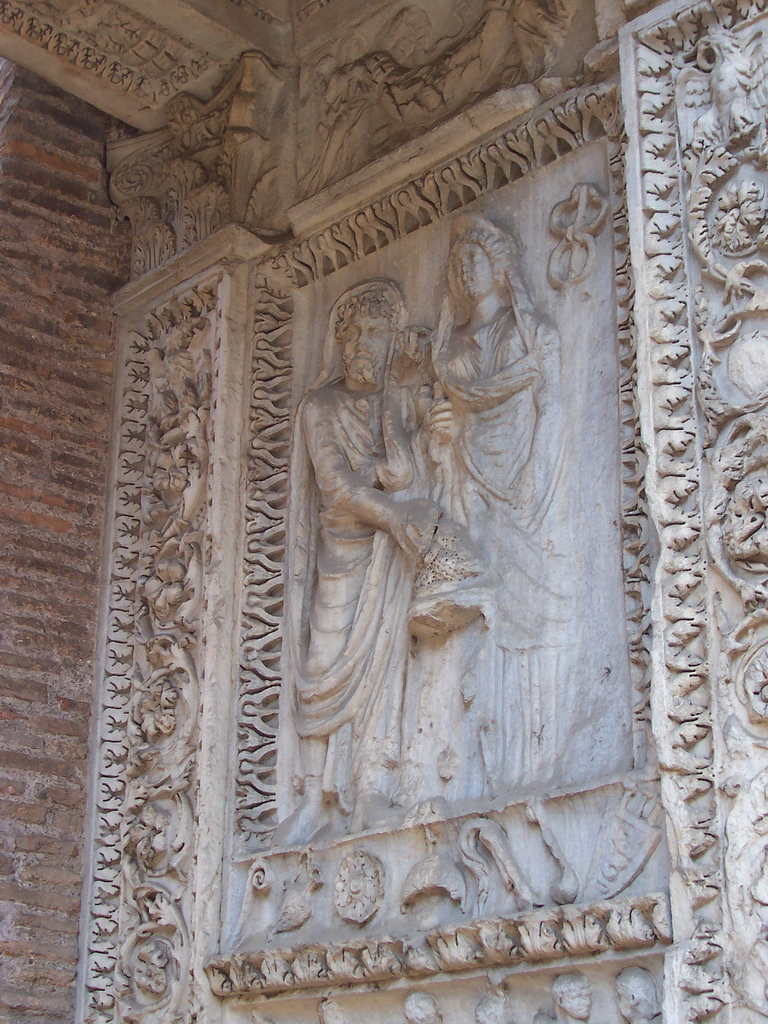History teaches us that Eurobonds are more doom ..La historia nos enseña que los Eurobonos son mas ruina..: Roma (Annus 29 aC-37 d.C).

History teaches us that Eurobonds are more doom .. Many aspects of Wall Street in 1929 and the crisis of the Euro in 2011 had its precedent in Rome when Augustus (Emperor 29-14 AD), returned from Egypt with an immense treasure in your pocket, put into circulation to revive the flagging Roman trade. This policy inflaccionista stimulated the commercial sector but also stimulated the prices went up at the stars until the emperor Tiberius (14 BC-37dC) reabsorbing that spiral cut short the currency. The debt which had been counting on the spiral of inflacción illiquid found and rushed to withdraw the savings. The Olio Balbo and had to face in one day to three hundred million of debt and closed the windows. Interested industries and businesses unable to pay its suppliers and also closed. Panicked. Everyone rushed to withdraw their deposits from banks. To the maximum and Vibón, which was the strongest, could not meet all the demands and called for help to the Petti. The news difunció in a blink of an eye and were then Petti customers who rushed to the bank with their books, preventing the rescue of his two colleagues. The interdependence of the various provincial and national economies within the vast empire, was demonstrated by the simultaneous assault on the banks of Lyon, Alexandria, Carthage, Emeritus and Byzantium. It was clear that a wave of distrust in Rome immediately impacted on the periphery. Even then there were bankruptcies and suicides. Many small properties, burdened with debt, could not wait for the new crop to pay for them and had to be sold for the benefit of latifuncios who were able to resist. Moneylenders flourish again, that with the spread of banks had fallen. Prices collapsed horribly. And Tiberius had at last to surrender to the evidence that deflation is no more healthy than inflation. With many sighs, distributed film billion to banks to put them back in circulation, with orders PROVIDED BY THREE YEARS, NO INTEREST ..
The fact that this action was enough to reinvigorate the economy, unfreeze credit and restore confidence, demonstrates the importance of banks and "soft loan" to revive an ailing economy. At the end of his life Tiberius would a balanced economy with a well-equipped Treasury
La historia nos enseña que los Eurobonos son mas ruina..Muchos aspectos de Wall Street en 1.929 y la crisis del Euro en 2.011 tuvieron su precedente en Roma cuando Augusto (Emperador 29-14 a.C), vuelto de Egipto con un inmenso tesoro en su bolsillo lo puso en circulación para reanimar el languideciente comercio romano. Esta política inflaccionista estimuló el sector comercial pero también estimuló los precios que subieron a las estrellas hasta que el emperador Tiberio (14 aC-37dC) interrumpió bruscamente esa espiral reabsorbiendo la moneda circulante. El que se habia endeudado contando con la espiral de la inflacción se encontró falto de líquidez y corrió a retirarlo de las cajas de ahorros. La de Balbo y de Olio tuvo que hacer frente en un solo día a trecientos millones de obligaciones y cerró las ventanillas. Las industrias y comercios interesados no pudieron pagar a sus proveedores y cerraron también. Cundió el pánico. Todos corrieron a retirar sus depósitos de los bancos. Hasta el de Máximo y Vibón, que era el más fuerte, no pudo satisfacer todas las demandas y pidió auxilio al de Pettio. La noticia se difunció en un abrir y cerrar de ojos y fueron entonces los clientes de Pettio quienes se precipitaron a su Banco con sus libretas, impidiéndole el salvamento de sus dos colegas. La interdependencia de las varias economías provinciales y nacionales en el seno del vasto Imperio, quedo demostrada por el simultáneo asalto a los Bancos de Lyon, Alejandría, Cartago, Emérita y Bizancio. Era claro que una oleada de desconfianza en Roma repercutía inmediatamente en la periferia. También entonces hubo quiebras en cadena y suicidios. Muchas pequeñas propiedades, cargadas de deudas, no pudieron aguardar la nueva cosecha para pagarlas y tuvieron que ser vendidas, en provecho de los latifuncios que estaban en condiciones de resistir. Volvieron a florecer los usureros, que con la difusión de los bancos, habían mermado. Los precios se derrumbaron espantosamente. Y Tiberio tuvo al fin que rendirse a la evidencia de que la deflacción no es mas sana que la inflacción. Con muchos suspiros, distribuyó cine mil millones a los Bancos para que volviesen a ponerlos en circulación, CON ORDEN DE PRESTARLOS POR TRES AÑOS, SIN INTERESES..
El hecho de que bastó esta medida para revigorizar la economía, descongelar el crédito y devolver la confianza, nos demuestra la importancia de los bancos y del "crédito blando" para reactivar una economía maltrecha. Al final de su vida Tiberio dejaría una economía equilibrada con un Tesoro bién pertrechado.
0 comentarios